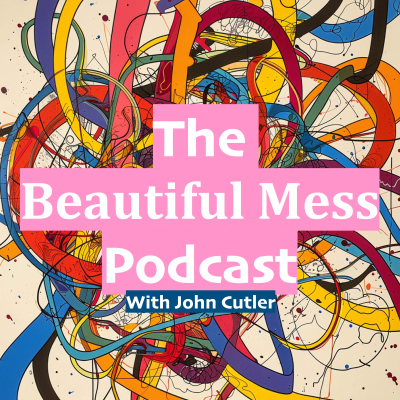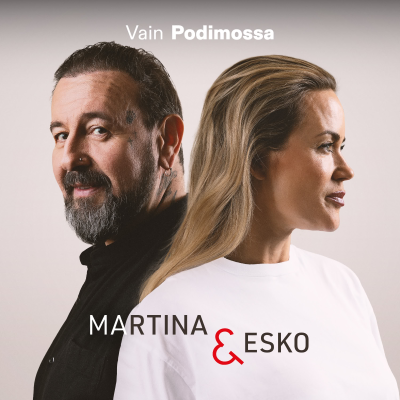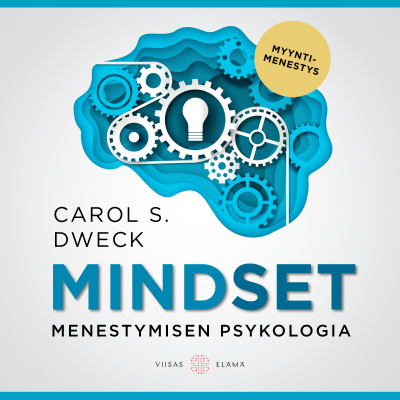
The Beautiful Mess Podcast
englanti
Talous & ura
Rajoitettu tarjous
2 kuukautta hintaan 1 €
Sitten 7,99 € / kuukausiPeru milloin tahansa.
- Podimon podcastit
- Lataa offline-käyttöön
Lisää The Beautiful Mess Podcast
A podcast about how context and nuance impacts our work, how we collaborate, and how we organize. Hosted by John Cutler, author of The Beautify Mess newsletter cutlefish.substack.com
Kaikki jaksot
5 jaksotProduct Coaching with Petra Wille
On this episode, I'm very honored to welcome Petra Wille. Petra is an experienced product leader, product leadership coach, and author. She has written two books, Strong Product People, A Complete Guide to Developing Great Product Managers [https://www.amazon.com/Strong-Product-People-Complete-Developing/dp/3982235103], and Strong Product Communities [https://www.strongproductpeople.com/strong-product-communities]. Community is something Petra is extremely passionate about and very good at. Petra, together with Arne Kittler, organize one of the most thoughtfully curated and run conferences in the world, Product at Heart [https://productatheart.com/], in their hometown of Hamburg, Germany. I highly recommend it. And tickets are still available for this fall. Petra and Arne actually had a huge role in my career by inviting me to my first product conference speaking opportunity in 2017 . I returned last year and it was going stronger than ever. In this episode, we focus mostly on coaching. We explore different types of coaching, when coaching is the answer and when it isn't, the role of communities of practice, and boundaries of influence. Of course, I'm rethinking this approach now, but we jumped straight in with a question. Here it goes. Transcript John Cutler: I like to get straight to it. When is coaching a bad idea? I don't want to put you on the spot because I know you're a fan of coaching. But I want you to explain to people when you think it's not the best idea. [00:01:11] Petra Wille: Right into it. I love it. So, a lot of companies use it when they should actually take more time and think about what their people should actually learn more about. And invest in training, capability building, coaching by the product leader itself. So I assume when you say like, when it's coaching a better day, you mean by an external coach, like I am one. So should people actually go to some basic training because what they're missing is know how. They just need to hear some new things. They just need to pick up some new lingo. That's oftentimes what I do in coaching and I'm always like, okay, but that's so basic, read a book, watch that talk, listen to that podcast, go to a training. And then maybe if you've really have a tougher problem to solve, then maybe coaching is something for you. So that was one thing. Reflective training would not be the appropriate format for you. Self learning could be the same thing, right? And then coaching is not a good idea if companies decide that 10 random people from the organization get coaching, and then just the first person that's raising the hand gets the coaching ticket. The coachee needs to allow me to help them and they really need to be invested in the challenge that they're having. And really want to make me understand what their challenge currently is. And then I'm entitled to ask the really helpful questions. So what do you want to be known for? Or what in this particular problem do you want to appear to your colleagues or something like that? The more trickier questions. So people need to be vulnerable at times in a coaching relationship, and if just like random people from random backgrounds gets a coaching ticket with me, then that's oftentimes not so helpful for them. And I have always the feeling that I cannot add the value that I would like to bring to these organizations, if that's what they do. So that's maybe the three situations where I think coaching's not so helpful. [00:03:04] John Cutler: I remember someone telling me recently that at their company, there was an incredible pressure on middle managers to go deep, get in the details, do a better job, essentially in this current climate. And they had actually fired many of the in house coaches. And then they told me that every executive had a leadership coach. And I'm curious your thoughts on that, where it seems like that wasn't quite fair. It seemed like the internal coaches who were trying to help the managers were seen as unnecessary. And meanwhile, it was seen that the leaders were somehow entitled to those coaches, or maybe that it would benefit the company. I know that's a messy question. But maybe what's a generous interpretation of that? And then maybe what's a, you know, what's a less generous interpretation? [00:03:49] Petra Wille: Yeah. So my question, if I hear in house coaches is always what type of coaches are we looking at? Because we're all so familiar with the agile coach concept and a lot of the agile coaches that I've been exposed to and was working with are not kind of coaches by only asking the right question at the right time, right? So they really have their personal take. They always share their personal tech and experience with the teams. That's the shortcut of these agile coaches, right? Ideally they provide the team with options and suggestions, but sometimes they're even telling the teams how to do certain things to speed things up. That's the pressure that the agile coaches are often under. So deliver things faster. But this is rarely something that I see, and I would love to see more of them, is in house product management or product coaches. And it could be all sorts of coaching, right? So if you need more product operations, or now one would call it maybe the product operating model and the transformation coaching towards such a more mature product organization, then that is something that product coaches oftentimes do. I, for example, don't provide executive coaching because it's just a different game. I think you have to have solid executive experience to be an executive coach. And do I have some leadership experience? Yes. But have I been an executive for a long period of my career? Maybe not. But I have been a product person for a long time in my career. So I can help product people and product leadership folks to get better at what they do with the challenges that they currently have. Am I focused on the purely executive part of this whole equation? So not. So it sounds like they have removed some of the people that are doing hands on work with the product teams, maybe the product organization, maybe the product development teams, and have the other side back with executive coaching and now focus more on the execution itself. That's such a different thing to do. Hopefully there's a benefit in that. Hopefully they will see positive impact from that. There's still a ton of stuff that leaders could learn and get better at the executive level, but it's not the same thing then product coaching, product leadership coaching, maybe the agile coaches we're doing. So yeah, I would be interesting to hear how that went. [00:06:10] John Cutler: When you're talking to product leaders that overlap that upper bounds in the hierarchy of the people that you end up coaching, are there any specific tactics that you use? Are there any specific considerations you need when coaching those individuals? [00:06:24] Petra Wille: It always so much depends on their background. So are there already one of us? So are they product people? Then their coaching topics usually are more the ones that the executive coach would have with them, right? So then it's more the storytelling, then it's the providing directional clarity. It's the strategy bit. It's the stakeholder management as in, investors, boards, senior executives. So then it's more these kind of things. You're no longer managing the product. You are now managing your organization to some extent. So your product becomes the product organization itself. And that is a big coaching topic. So it's really, it's this unlearning one thing, your product reflexes, and relearning the product leadership reflexes. So that is maybe the biggest part, if you have former product background. But I have a lot of product leadership coachees that have no former product background. And then it oftentimes is more helping them to understand what actually happens within the teams, the team dynamics that unfold. It can be super simple things like what are the challenges in discovery and delivery? So how does it feel when you are working in such a product delivery or product team, depends on how you call it in your organization, right? But that's, that's an entirely different coaching game. One is more like helping them to develop the empathy that one needs to be a successful product leader when working with product teams and your product organization. And the other oftentimes is more the upper level stakeholder management, I'd say. But these are the evergreen topics. Unlearning reflexes in both situations is one of the big topics I'd say. [00:08:05] John Cutler: When you're first meeting someone that you might potentially coach, there's probably a number of twists in that journey in the beginning where you're trying to understand where they're coming from. I'm curious how you put aside-- or maybe you don't put aside-- your personal biases of the type of environment you want to work in or the way you want to approach leadership and then where that person is coming from. Because I think that's a skill that a lot of great coaches have, but it's hard to understand exactly what's going on there. Are you literally meditating inside? Are you clenching your hands? Are you just telling yourself, stay curious, stay curious? How do you do that? [00:08:46] Petra Wille: I'm a curious person, so that's not the hard part. Some of the thought leaders that all of us are reading and quoting do us a massive favor in describing an ideal scenario. Maybe they're not talking often enough that maybe impossible to reach the super ideal scenario. Especially for one organization at any given point, it is hard to, to be at this ideal scenario. I saw organizations being at an ideal scenario, but with some parts of this organization for a really limited amount of time. And then you have to invest a lot of energy to keep it there, right? So it's not easy. But I think it's good if we have all of these people writing the books and talking about the ideal scenario. And then on the other hand, it is super important to have other people-- and you, for example, for me, fall in that bucket of talking about all the messy decisions that one need to make and all the messy situations that one could end up in trying to improve things. And in coaching, my take is if I can help this product leader and improve the whole work environment of every person in their organization by 5%, I think we already way better than where we started. So this is more or less my ambition. And therefore it's important to be curious about their situation. I'm more curious about figuring out, okay, what might be most helpful for them and what is a realistic thing to work on. Because even if I see, "Oh my God. Role descriptions are a mess and career ladders not existent and so many things that actually they could work on." But then I figured I have a massive conflict with one of the stakeholders and that is what currently is blocking them, then we're working on that and the rest remains messy and I think that's perfectly fine because this is just how it actually is. And do I totally love when they go still read the books and watch all the talks that we put out there and listen to these podcasts and get inspired. Yeah. But I oftentimes tell them, "Hey, don't be too overwhelmed, if you go to a conference, you will hear a lot of great things, but take one idea back to your office and just try to implement it and see how it goes and iterate on that." Then you're already ahead of the curve, I'd say, because so many people are so overwhelmed by all the material out there that they're not starting anywhere. In coaching, my main goal is always to find something that helps them in their situation because they need to do it. I'm not there. I'm just a remote coach. We have our session every other week or something like that. So we need to find something that really resonates with them where they think like, yeah, this is actually something that I could do, that I could implement it, I could try it and I could, I don't know, pull off whatever. [00:11:29] John Cutler: One thing I liked about the Product at Heart conference was afterwards there was a patio and everyone was at picnic tables and I actually observed a lot of coworkers coaching each other or reaching out to other people, maybe not at their company. And in some way, I know that's not formal coaching, but you could see that people were often balancing curiosity curiosity with the desire to help, with the desire to see what that person wanted out of the situation. Understanding the situation. When you think about a company and you think about all that informal coaching and informal mentoring, are there tips anyone could use even as an informal coach within their organization to build just a culture of that type of guidance? Or would you suggest that everyone should go to coaching training? How do you create a culture of that informal coaching? You seem to have done it with your conferences. So like, how do you do it internally? [00:12:22] Petra Wille: Yeah, so community, that's what the conference does, right? A community for the day in particular. But I think that is something that we highly in the organizations that we work in. We always go to the training, go to the conference, bring in the coach. But this peer coaching is tremendously valuable and should happen more often. For it to happen, you need to create these moments where it can happen and it was the water cooler, it was the coffee kitchen. This is still a challenge for most of our working environments, right? So, deliberately designed community of practice-- sessions, meetups, and can be super informal gatherings-- and I know it's expensive for some companies to bring everybody in, but every once in a while, I think that would be massively helpful. As you said it, it was the after hour conference and people were still like, yeah, pumped by the stuff that they heard and massively inspired by the speakers. But also inspired by the great company around them. So you want to learn from them. You want to talk to them. So whatever you do, create these moments where people are allowed to share, encouraged to share, able to share, what they're learning. And then I think one thing is better listening, which sounds boring and so many people are saying this, but for me it really helped once I learned this "listen to understand and not to reply." I think this is the first good thing that coaches should learn and actually leaders as well. If you're in a leadership role, then be curious and ask your question and then listen to understand where the person is coming from. Learn more about the context, why they're saying things that they say, all these kinds of things, and not so much for helping them immediately. And yeah, at times that is something that I do when I have this kind of, okay, this person is super junior, super early in their career, in their leadership role. So they might need a recommendation now, because otherwise it takes them ages to get to the exact same point. That definitely is something that I sometimes do, but I try to avoid it as much as I can. So giving options is already better to say "Hey, I learned, with all of my clients, some have solved it that way. Some have solved it the other way. There is something in between. What, what sounds like you? What resonates most? Should we unpack one of these scenarios?" So really kind of offering options helps a lot. And that is something that you could do with your colleagues as well, right? If they share an issue, then be curious. Why is it bothering them so much? Then, by the way, figure out where the energy comes from. Figure out where the energy comes from. So why are they so upset? Why are they kind of in this conflict scenarios all the time? So where's the energy going? Where's, where's the energy wasted, maybe even? And then ask questions around that topic. And that already helps a lot. And not so much giving advice. That's not usually not so helpful because people, if they have like, ooh yeah, I had this realization, they're so more likely to act on it, than if you give them a recommendation, say like, go read that book. Yeah, sometimes helpful. But if you offer your time and your clever questions to walk them through something, I think that is, yeah, even more valuable, maybe than a recommendation. [00:15:34] John Cutler: This probably is a more advanced coaching topic, but I think it's probably relatable to many people, but I've been reading a lot where people are advising on emotional regulation. This idea that you have these feelings and having the feelings is okay, but if you can magically detect the feeling before anyone else can notice and before you do anything stupid, you can somehow capture that idea and then do something productive with it... [00:16:00] Petra Wille: ... and that's the energy thing, right? So if you feel the tension, the energy building, how could you sense that? And how could you then do something with it ideally? Because a lot of people think it's about doing something against it, but, but actually you should do something with the energy, maybe not the thing that you were about to do the last 300 times you were in this situation. So we find new ways of reacting to it, but we're using the energy, just channeling it somewhere else and doing something with it. And sometimes it's having this harsh conversation with somebody. People can handle way more and tougher conversations than one would think. That's another thing that we often discuss in coaching, this love it, change it, or leave it and I think people, if they don't love it, they so easy flip to leave it. And I'm always like, "Okay but you, you skipped the changing part. So can we have this tough conversation and see how things turn out!" Because maybe that actually creates something from there. We don't want to burn every relation we get, obviously, but people can usually handle more conflict than we think. [00:17:02] John Cutler: That is incredible for a couple reasons. One reflection is the idea of not thwarting the energy, but directing it somewhere. So you have control of that energy. It's not a bad thing. You're doing something with it. And the other idea that jumped out to me about that is the idea that under certain conditions, you can have those difficult conversations. It's rare, but when someone is in a conversation with a lot of people and says, "I'm going to pause for a second, I want to acknowledge that I'm feeling this level of X, Y and Z, it's a little vulnerable to admit that, but that's what I'm feeling right now. I want to dig into this." Although maybe those conditions are rare where you can say that it seems like you can get away with more than you imagine if you set that conversation up correctly. But it does take a lot of courage and it also takes decent delivery at that point. [00:17:56] Petra Wille: Yeah, but I had several coachees that had great success with especially postponing things when they were in a meeting and they felt like, okay, really anger is building up or a physical reaction. They want to actually postpone it kind of run out of the door of this meeting room, because for whatever reason, some people are really not well in tune with their emotions. So you can sense attention is building up, but you cannot on the spot share with others what the actual problem is. But the other humans in the room usually are actually perfectly fine when you say like "Hey I'm not comfortable in this conversation right now. I can't tell you why. Can we come back in an hour from now and start again?" or something like that. And it's rare that all the others stare back at you and think like you such a crazy person because everybody of us had been in a similar situation, right? And it is actually seen as rather professional to have a reaction like that. So instead of just rushing through the meeting, not paying attention to it anymore because you're feeling your emotion and you just can't pay attention to the situation anymore, then I think it is professional to say like, "Hey, I can't process things anymore because I'm not feeling well. It's a weird situation I'm in. Can we just come back in an hour? Or can we have one on one conversations instead of a group discussion?" That sometimes that the group dynamic is a problem in some So all of my coachees then observe that others are doing this as well, really quickly, because it's such a comfortable thing to some extent. If one person, one brave person starts with it. [00:19:29] John Cutler: There seems to be a lot of popular advice that basically boils down to Improving your agency, improving your ability to control your emotions, improving your ability to impact your situation, believing strongly that you can impact your situation. And then there's this flip side of that argument, where people stress the environment that you're working in and whether the environment is conducive. And then the other side says, "It shouldn't matter, you can always control your emotions." And the other side says, well, it's the environment. Someone says, well, people created the environment. The other people said, yes, but the environment has an impact. And this sort of swirls and cycles. When you're coaching people directly who are struggling with that balance or trying to come to some narrative in their mind about how to balance the sort of individual side of it versus the environment, do you have any coaching prompts that you use with people? Or do you take any certain approaches to help people find a balanced perspective in their mind. [00:20:26] Petra Wille: It really depends on their level, right? If they're still on IC individual contributor level, especially in a coaching relationship, let's assume we have these 10 calls over the course of five months, that's all we got, so we have this bi weekly conversations, and when I was still coaching individual contributors, there's not much a coach could influence on a system level through an individual contributor, right? So I usually made sure that they understand they have more influence, they, one could think. Sean Russell always, I love when he uses this go positive and go first. That's always the headline that he uses. So whenever you see something not going well, then you still could improve it with your team or in your area, and then just go first. And hopefully other people see that and pick it up. But that's basically the influence that one got if you're on an individual contributor level. Plus it's the managing up. That is something that I always encourage my coachees to do, because now that I'm working with the product leadership folks, I can tell you there's not enough feedback towards the leadership layer. So whenever you see something going wrong, then please be vocal about it, talk to your manager, point it out. Share what your concerns are when the system stays as it is, what the problem and negative consequences are for the organization, because that oftentimes is not happening and leadership is not seeing the issues because from where they are, it's invisible to some extent. You see the issues, but you think they see the issues, but never told them. So the managing up part is big if you are on an individual contributor level. Then once you move one layer up and you kind of product team lead, head of product in a small organization, these kinds of things-- so you're still directly managing the product organization, you may be still doing all the product strategy stuff and all these kinds of things-- then you have a bigger influence on the system. It's kind of a third, a third, a third, it's always the rule that I try to implement with the people. So people process products. So one third of your time, approximately, what are we building in the future, what are we building right now? What are we shipping right now? So that's kind of the product stuff. And then the process is, are we building-- and I like this shipyard metaphor that I'm borrowed from Jeff Redfern, former Atlassian. So he uses that shipyard metaphor to say the teams are building the ships and the vessels and the boats. But have we as leaders, thought and really designed the shipyard around it. So that's kind of my process thing. And then it's the people. So are we having the right people on board? And I think if product leaders try to look at all three dimensions, every once in a while, that already helps a lot. They should look into this more systemic issues that they get. But still, again, they have not influence on all of these things, so managing up is still a thing. It becomes more meta once you're there. So the topics that you talk about with your senior executives are even more meta than what the individual contributors see. Then I think there is no excuse once you have a leadership role that it's out of my hands, what should I be doing about it? Then it's on you at least to some extent to form meaningful allyships with your peers, because there are CTOs somewhere and there's a marketing person somewhere and sales lead somewhere. Build this allyships, raise concerns if they're conflicting goals and all these kinds of things. So then it's, then you're not off the hook anymore, I'd say. [00:23:53] John Cutler: I liked your discussion of managing up. It's funny. Maybe we don't talk about product followership enough... [00:24:01] Petra Wille: hmm. [00:24:01] John Cutler: Versus product leadership. And so I'm curious your thoughts on that, where it's not exactly managing up. It might not be managing up directly to the person that you report to, but there are product leaders-- they might be skip levels, they might be other folks in your organization-- and you have to come to grips on some level that you're following their lead and you're following their strategy. And then there are times when you want to try to relay feedback. Is it just too dangerous to try all those skip levels? Or are there ways that you can be a better product follower? [00:24:30] Petra Wille: Ooh, that is a, I think there are massive cultural differences from country to country and from organization to organization, right? So I work with a lot of Scandinavian clients and their skip level is not a problem. Nobody cares. So if you see something, you point it out to whoever you meet in the elevator first in the morning, right? Colleagues will never finger point at you because you've done that or something. So that's not weird. In Germany, it's weirder to do these things. So we love our hierarchies, but not in every organization, right? So this is really understand the company culture that you live in, understand some of the cultural backgrounds of the people that you're working with, because even if the company might be a German one, the diversity cultural wise might be massive, right? So understand the cultural backgrounds, understand what others think is appropriate as well. I think that's the first thing that you would need to do to start all of these. [00:25:25] John Cutler: Have you noticed why in certain cultures there seems to be an aversion about talking about how you work? It's sort of seen as too process oriented or talking about working is somehow seen as not working? I'm curious one, if you've seen that, but two, how do you maybe coach leaders that it could be okay to talk about how you're working, that it's not some sign that people are just twiddling their thumbs or getting too theoretical about things? [00:25:52] Petra Wille: Some companies love their frameworks, their tools, their processes. They're super obsessed with it and then it's too much of these conversations. Where others have too few of these conversations and now always just so focused on the output, so to say. And to me, this is weird because the whole Agile thing was all about reflecting every once in a while, pausing, have your retrospective. And that is for improving your ways of working. The retrospective is not just drinking tea together and chillaxing the hell out of the last two weeks. Right? So it is actually about improving your ways of working every iteration basically. And I don't know where things went sideways here, but why are we not doing this in product as well? And I know a lot of organizations do. But that should be a common practice. If we learned one thing, rituals and rhythm are super helpful in an organization. So why not putting rituals and rhythm to all your product work, at least to some extent. And it does not need to be a weekly, how do we do product meet up? That's definitely not something that I would recommend. Longer cycles is what we're looking for. But still we want to do this every once in a while. I hope, always hope, that product people have this kind of balancing this forces between what is valuable and what is just a waste of time. If you don't do it, it's not cool. If you do too much of it, that's not cool. So you need to strike the balance somewhere in between. And that depends on the situation of your company, maturity of your product organization, maturity of your product people. If you need to run the show with fifteen junior product people, then hopefully you have more of these sessions. If you have super experienced product veterans, then maybe not so important an occasional coffee, does it? So it is really tricky to strike that balance, but I would love more product leaders to at least think about and deliberately decide where do we draw the line in the sand? So how much community do we need? How much change do we need? What is healthy? And answering your question from a different angle, by the way, part of my leadership coaching is always to help leaders understand that time to think, or actually thinking things through, is part of their work now. It should have been part of their product management work. Oftentimes they just managed to get by without it, but when you're in a leadership role, you need to create that strategy and therefore you need to stroll the city and think about random things, get your inspiration from some somewhere. And that does not happen when you're in your small cubicle or home office, even worse. So. Product management is a science, yes, but it's also an art. So treat yourself like an artist and allow yourself a bit of time to just think things through, let your mind wander. This is part of being a creative human being, and you need to be such a creative human being if you're in a product leadership role. [00:28:50] John Cutler: I had more questions, but I think that might be an amazing place to end because that was a, a nice mic drop. We had discussed this before, but, you mentioned that there was a number of things that no one asks you. And so maybe to finish it off, what's that one thing that no one asks you that you are a super nerd about that you would go on forever. You're just waiting for a chance. And then we'll use that as the hint for our next podcast. So like on the next podcast, we'll discuss your super nerd out thing that I didn't ask you about. [00:29:18] Petra Wille: So you've been to a conference last year, right? And Arne and I are really, so we both nerds about this providing directional clarity is one key part of product management. And the other thing that we had is theme around it. So three speakers were delivering a talk on that particular topic is how to make time for yourself to think things through. Because I think that's the prerequisite for any providing directional clarity to your team. First, you have to block yourself some time and think things through, and then you are able, after you sort some things, and you have mental models that actually work with everybody, and you have a story that you can tell, then you can provide that direction of clarity for your team. That's super important. So I could geek out about this. How to create yourself the time to think things through all day. [00:30:08] John Cutler: Well, we'll stop now to give the listener time to think things through. So maybe pretend that the podcast went for another five minutes. I'll insert silence for the next five minutes. Okay. [00:30:17] Petra Wille: White noise would, would do white noise. [00:30:20] John Cutler: I'll add five minutes of silent white noise at the end of this for you to meditate. [00:30:24] Petra Wille: And the question, the question for the meditation is what do you want to do differently? [00:30:30] John Cutler: There you go. Okay. Well, thank you so much, Petra. Um, [00:30:35] Petra Wille: That was fun. [00:30:35] John Cutler: I guess I'm supposed to ask where people are supposed to find you, but you're so ubiquitous in the product community ...that they will find you. Are you sold out of Product at Heart yet for this year. [00:30:45] Petra Wille: No, we still have some tickets left. It's in September this year, so it's not in June. So we have some tickets left. So come visit us in Hamburg in September. Should be lovely. [00:30:56] John Cutler: Yeah. Hamburg in September. It's wonderful. Okay. Thank you so much. And yeah, we'll chat soon. [00:31:00] Petra Wille: You're welcome. Get full access to The Beautiful Mess at cutlefish.substack.com/subscribe [https://cutlefish.substack.com/subscribe?utm_medium=podcast&utm_campaign=CTA_4]
20 Things I've Learned as a Systems (Over) Thinker (Extended Commentary)
Back in 2022, I wrote a post called 20 Things I've Learned as a Systems (Over) Thinker [https://cutlefish.substack.com/p/20-things-ive-learned-as-a-systems]—”over” was in parentheses—and I've since received so much feedback about that post. I recently re-shared it on LinkedIn [https://www.linkedin.com/posts/johnpcutler_20-systems-over-thinker-tips-activity-7196375102605713408-ncWd?utm_source=share&utm_medium=member_desktop] and it obviously strikes a chord. And so I thought that for this episode, I would just quickly go through that list, provide a little bit of extra color, and hopefully clarify some things. I'll be back to interviewing guests in the next episode, but I'd just like to experiment with this format and be curious what you think. Here is the list for reference: * Take care of yourself. Your brain is working overtime—all the time. Practice “radical” recovery. * You may spend a lot longer thinking about things than most people. Pace your delivery. * If you go deep first, and then simplify…keep in mind that you don’t need to show all of your work. * Your default description of (almost) any problem will be too threatening/overwhelming. * Do your deepest thinking with co-conspirators (not the people you’re trying to influence). * Informal influence is often not formally recognized. Prepare mentally for this. * The people you’re trying to influence spend 98% of their day overwhelmed by business as usual. * Remember to also do the job you were hired to do (if you don’t you’ll be easier to discount). * Seek “quick wins”, but know that most meaningful things will take a while. * Some things take ages to materialize. It is discontinuous, not continuous. * Make sure to celebrate your wins. They will be few and far between, so savor the moment. * The people who support you in private may not be able to support you in public. Accept that. * Hack existing power structures—it’s much easier than trying to change them. * Consider becoming a formal leader. It’s harder in many ways, but you’ll have more leverage. What’s stopping you? * In lieu of being a formal leader, make sure to partner with people who actually “own” the area of change. * Watch out for imposing your worldview on people. Have you asked about what people care about?. * You’ll need a support network. And not just a venting network. Real support. * “Know when to fold ‘em”. Listen to Kenny Rogers The Gambler. Leave on your own terms. * Don’t confuse being able to sense/see system dynamics, with being about to “control” them. You can’t. * Grapple with your demons, and make sure not to wrap up too much of your identity in change TRANSCRIPT [00:33] Take care of yourself. Your brain is working overtime all the time. Practice radical recovery. I would basically find myself at the end of a multi day effort . I wasn't aware of just how tired I was and just how fried I was. How muddled my thoughts were. And I think part of the reason for that is if you enjoy going deep on things, and if you enjoy picking things apart, and if you enjoy analyzing things, you sometimes don't notice just how much effort that takes and how much bandwidth that takes. And so it was important for me to try to set aside time to just completely disconnect, not jump into another thinking topic, not jump into something else that had high cognitive load, but try to strive for zero cognitive load. One of my favorite things is just watching cartoons with my son. Because I completely disconnect. [01:29] You may spend a lot longer thinking about things and most people. Pace your delivery. So if you've spent many hours going deep on something, you can't walk into a meeting and expect someone in three minutes to follow your thought process. It's just not going to work. You're going to have to pace your delivery to bring someone along on that journey. And if you're good at analyzing things. If you're good at this type of systems thinking or overthinking, you can go so far in a couple hours. You can focus and go so deep. And there's no way you're going to be able to deliver all that information to someone. You have to get really really, really high level and rewind. And be super deliberate about how you deliver that information. [02:17] If you go deep first and then simplify, keep in mind that you don't need to show all of your work. So what I used to notice is that I would keep all of my work and the three bullets. And I would start with the three bullets and say, well, this is where I arrived at. And I felt like it was important because for some reason it's important to me to show how I got there. So instead of just saying, here's the solution, do this. I would say let's try to unpack all the layers of this particular problem and how I arrived at this particular solution. It turns out that that can greatly diminish the impact of the destination that you arrived at. And honestly it can open you up to all sorts of debate. It can open you up to all sorts of questions. And somehow it makes you seem less confident about what you're doing. Now, not that I agree with any of that and I wish it could be different, but realistically you don't need to drag people through the whole mess. [03:17] Your default description of almost any problem will be too threatening or overwhelming. This is something I've had to come to grips with. The default detail that I want to go into on something is just going to seem threatening. And the more I try to sugarcoat it the more weird it sounds also. So this is a tough one to come to grips with, but the important point here is understanding that the depth that you go into on something and the thoughtfulness you try to put into something and the different perspectives you try to discuss can be very threatening. In fact, I used to think that describing something as a systemic issue was in fact less threatening. Because in some ways, by describing it that way you understood that well, there's a lot of contributing factors. There's not one person to blame here. There's a lot going on. And we're going to be able to figure this out. Or so I thought. Realistically, when people hear systemic issue, when you don't point to one specific person or one specific situation and say, that's, what's messed up, it's actually highly threatening. So keep that in mind. [04:24] Do your deepest thinking with co-conspirators not the people you're trying to influence. In an ideal world, at least for me, everything would be co-designed. Everything would be a result of deeply exploring things with everyone involved. And you would arrive at the solutions that everyone believed in. That's not the case, in many situations. You might have other people that you're close with who are willing to go on this deeper journey to understand what the problem is. And I call those co-conspirators in this case. These are fellow system overthinkers who don't mind the ambiguity, who don't mind exploring different paths and then rewinding. Who don't mind dredging up these particular issues and looking at them from different angles. Realistically, if you're trying to influence someone, it might be a good idea to bring them on that journey. But it might actually completely defeat your cause to bring them on that journey. So in that particular situation, if the person you're trying to influence isn't necessarily on that wavelength, and doesn't want to take that journey with you, you don't bring them along that particular journey. And you might be more influential in the long run. [05:36] Informal influence is often not formally recognized. Prepare mentally for this. If you're expecting the same kind of recognition that goes to people with formal influence and formal authority, you'll probably go off track. In fact, I think if you're seeking that, if you're seeking that recognition, if you're seeking to be in the limelight, if you're seeking that kind of gratitude publicly, you will be sorely disappointed. And it will probably send you off track. So you have to prepare mentally for the fact that many of the things you do will influence informally in ways that people might not be able to immediately recognize. You might have a small number of people come up to you and say, you know, I really liked what you did there. Thank you so much. I really appreciate it. But it's not going to be this groundswell thing. You're not going to win the president's club trip to Hawaii or something with your sales team. And as long as you prepare mentally for that, I think you can be in good shape. [06:39] The people you're trying to influence spend 98% of their day overwhelmed by businesses usual. If you're trying to influence senior leaders you need to understand that they are really busy. This seems to be such common sense. But if you imagine that they're going to have any amount of time to go deep or as deep as you've been going on something, and appreciate all the nuances-- if you're expecting that-- you're going to be disappointed. So you need to imagine that you are delivering the message to people who are overwhelmed. Who are under incredibly high cognitive load. Who are not necessarily in the right frame of mind to explore some kind of systemic issue. You have to be prepared for that. Remember, you've set aside a couple hours to go deep on something. You've had all this time to do this focused work on something. This person is getting bombarded by every single person in the company. Back and forth. Everyone has a problem. Everyone is trying to sell them something. Everyone is trying to influence them. Everyone's telling them their version of what's wrong. That's the person you're trying to influence. And so you need to modify how you talk to them accordingly. [07:53] Remember to also do the job you're hired to do. And if you don't, you'll be easier to discount. So you might've been hired in the company to do job a. But upon arriving and because of the way you think you discover all these other problems that are probably deeper problems impacting the ability to do a. And so you go and you try to solve those particular problems. Just be aware that if you don't do the job you are hired to do or don't work to clarify the job you were hired to do-- because maybe they didn't know the job you were supposed to do so you have to craft that role when you walk in-- when things get difficult, or if someone's looking for someone to blame, or if someone's looking for someone to say, well, I don't know what they're doing, you're going to be pretty vulnerable in that regard. So keep that in mind. [08:41] Seek quick wins, but know that most meaningful things will take a while. Things don't change in companies in a matter of days or weeks, it can take years for things to change. So it's important to be realistic about the change efforts or the things you're trying to influence in your company. It's unlikely that things are going to just happen right away. So obviously enjoy the quick wins. But be prepared to play the long game with most of the things that you're working on. [09:12] Some things take ages to materialize. It's discontinuous, not continuous. I guess this is extending number nine to make a point that progress is also not continuous. So someone might say, well, we'll take three years, but progress towards that will be pretty incremental and every month things will get better, but even that doesn't work like that. You could be going for a year and not really see noticeable results. Maybe there's leading indicators that things are working. Maybe there's small signals that things will improve. But progress isn't always continuous. You'll often have to put in a lot of time, and then suddenly you'll see the fruits of your labor appear and then things will level off again. And then suddenly the fruits of your labor will appear again and then level off again and then probably drop again and then go up again. So just be prepared for that. [10:02] Make sure to celebrate your wins. They will be few and far between. So savor the moment. When something does go right, make sure to enjoy it. A lot of passionate problem solvers and systems thinkers and other folks are, are so zeroed in on the big picture and how everything is connected, that they don't give themselves the opportunity to savor the immediate wins that they have. They don't tell people about it. They don't think, Hey, maybe I'm going to take a day or two off. They keep pressing on and on because they see the bigger nut they want to crack. And so don't forget to celebrate your wins. [10:43] The people who support you in private may not be able to support you in public. Accept that. So if you are an informal influencer, if you're someone who's trying to pick apart a wicked problem for people, you probably will have people thanking you for your effort. And they might support you in private. But remember that supporting you in public is a much different proposition. It's very, very different. And so that person who's supporting you and helping you along the way, or is a co-conspirator with things, might not be in a position to, in a public setting say, and I'm working with X to be able to influence that. They might not have that privilege and it might not be good for them to do that. So don't expect that in return. [11:31] Hack existing power structures. It's much easier than trying to change them. If change happens in a certain way in your company, as a result of certain power dynamics and power structures, it is so much easier to latch into those dynamics than it is to try to change that. And so a lot of kind of deep thinkers or change agents try to upend the whole shebang. And it's very, very difficult to do that. And so, very importantly, if you see something you can hack, if you see something, you can latch your efforts on to consider that. [12:09] Consider becoming a formal leader. It's harder in many ways, but you'll have more leverage. What's stopping you? I've noticed this in myself. And I've noticed this in other folks who have some of these characteristics. But, it's a fear of formal leadership. And in some cases, I think this is because they see potential abuses of power. Abuses of formal leadership. And they don't want to be that person, or they are afraid that they might commit those same things and be seen as a little bit of a sham right? Seen as a bundle of contradictions. Oh, when I wasn't a leader, I said this was broken. Then I became a leader and I became just the same people that I was railing against when I did that. So they talk themselves out of formal leadership positions. And I guess it's important to know that, Hey, if it's not you, then it's going to be someone else. And I think that's an important consideration for many people. [13:04] In lieu of being a formal leader, make sure to partner with people who actually own the area of change. This is a little bit like hacking existing power structures, but basically there's people whose job title is to fix something. There's people whose job title is to improve something. And if you work separately from them, You will be seen as working in contradiction to them. There's a reason why they have that job title and have those responsibilities. And you just don't want to end up in a battle with someone with that formal responsibility. It's much better to partner with them. And in many cases it's much better to let them get the credit for it because they need the credit because it's part of their job description. [13:44] Watch out for imposing your worldview on people. Have you asked about what people care about? I've fallen into this trap so many times. I'm a raging collectivist. If it was me, we'd have, you know, 150 person retros and people self assigning to all these improvement areas and managers would be primarily coaches and wouldn't really be micromanaging these teams and the improvement stuff. It would be crazy town. Because that's me. It's easy for me to impose that world view on other people. It's important to ask, what do they care about? How do they think the world works? How do they think change happens? Some people imagine change is primarily a function of people's merit, about individual effort, about individual responsibility and accountability. And if you run in there like a raging collectivist, and expect them to just do what you want to do in the way you want to do it. It's not going to work. [14:42] You'll need a support network and not just a venting network, real support. Venting networks are groups of people who get together and just vent about the current situation. They whinge. They talk about how messed up it is, how circular it is. It's almost a spectator sport at that moment. And at every company they have these venting networks. However, that's not going to be enough. You need a support network. You need people who are going to listen to you, and are going to try to nudge you towards being proactive. And maybe let you do the same for them in return. Right? You're going to need a support network, not a venting network. [15:23] Know when to fold them, listen to Kenny Rogers, The Gambler, leave on your own terms. Pretty self-explanatory, but for your own health and wellbeing, it's often good to know when to move on. You've tried your hardest. Hopefully you did your best. You learn from, maybe, the mistakes you've made, but it's time to move on. [15:41] Don't confuse being able to sense/ see system dynamics with being able to control them. You can't. For people who are able to go really deep on things and who are empaths or highly sensitive people or any combination of these things, you are sensing things and seeing things that many other people don't see. However, it's super dangerous if you think, just because you can map it out, just because you can sense it just because you can describe, it means you can control those forces. You can't. Now you might be good at figuring out good places to start experimenting. You might be good at figuring out higher leverage places and lower leverage places, but just because you can see and understand something doesn't mean that you're able to just jump in and fix it. [16:28] Grapple with your demons and make sure not to wrap up too much of your identity in change. Huge one for me, I've fallen into this trap a bunch of times. When you self-identify with some outcome, some change outcome, and it's reflecting some deeper part of your past or how you grew up, or how you interact with people. And once those things connect together, it's very, very difficult to find a positive outcome. You'll find that it's never good enough. You'll find that you're never able to work out whatever you were trying to work out through your work and through some particular piece of change. So when you are trying to work out some of your demons through the change efforts or thinking efforts you have in a work environment, just be very careful. I hope this format was interesting and that you found it helpful. I'll be back to interviewing guests in the next episode. Have a great day, have a great weekend. Take care of yourself. Get full access to The Beautiful Mess at cutlefish.substack.com/subscribe [https://cutlefish.substack.com/subscribe?utm_medium=podcast&utm_campaign=CTA_4]
Sociotechnical Maestros with Gene Kim
Today I'm talking to Gene Kim. Over the years Gene's work has had a huge influence on me. From books he authored and co-authored including The Unicorn Project [https://www.amazon.com/Unicorn-Project-Developers-Disruption-Thriving-ebook/dp/B07QT9QR41], Phoenix Project [https://www.amazon.com/Phoenix-Project-DevOps-Helping-Business/dp/0988262592], DevOps Handbook [https://www.amazon.com/DevOps-Handbook-World-Class-Reliability-Organizations/dp/1950508404/ref=pd_lpo_sccl_2/144-7170774-7747116], and Accelerate [https://www.amazon.com/Accelerate-Software-Performing-Technology-Organizations-ebook/dp/B07B9F83WM/ref=sr_1_1], to his advocacy and community building with the DevOps Enterprise Summit, now called the Enterprise Technology Leadership Summit. I recently finished reading Gene's latest book Wiring the Winning Organization [https://www.amazon.com/Wiring-Winning-Organization-Slowification-Simplification/dp/1950508420] which he co-wrote with Steven Spear. The themes of slowification, simplification, and amplification have already started to seep into my day-to-day conversations. The book is filled with case studies, but also creative metaphors like Gene and Steven moving a couch, which is where our chat starts. Get full access to The Beautiful Mess at cutlefish.substack.com/subscribe [https://cutlefish.substack.com/subscribe?utm_medium=podcast&utm_campaign=CTA_4]
Software Development As Collective Learning With Hazel Weakly
Back in late February, Tom Kerwin and I wrote a post titled How Capable Leaders Navigate Uncertainty and Ambiguity [https://cutlefish.substack.com/p/tbm-274-how-capable-leaders-navigate]. The post listed 18 competencies—things like Accept We are Part of the Problem and Blend Diverse Perspectives—along with sample questions you could ask yourself, or someone else, to reflect on each competency. A couple days later, Hazel Weakly shared a deeply introspective post [https://hazelweakly.me/blog/observations-of-leadership-part-one/] where she used our post as the basis for a personal retrospective. I was completely blown away by the depth and thoughtfulness of the post, as were many others on LinkedIn. In this episode we talk about Hazel’s journey from individual force multiplier to focusing on collaborative learning and scaling that up. We talk about emergence and systems, developer productivity, architecture as a catalyst for coherent autonomy, migrations, being Done, Done Done, Done Done Done, and how being explicit about values, culture, and collaboration enables more graceful and continuous change. We end by talking about how leaders can’t wait for outcomes to introspect and get feedback (hence Hazel doing that deep dive personal retrospective). Hazel is currently a Principal Platform Architect at Datavent, and serves as a Director on the board of the Haskell Foundation and is known as the Infrastructure Witch of Hachyderm (a popular Mastodon instance). Hope you enjoy the episode, and thanks for your patience as I become a better podcast host. Podcast RSS: Subscribe to The Beautiful Mess Podcast in your favorite podcast platform using this RSS URL: https://api.substack.com/feed/podcast/24711.rss [https://api.substack.com/feed/podcast/24711.rss] Will Larsen’s post on migrationshttps://lethain.com/migrations/ [https://lethain.com/migrations/] More info on Stripe’s migration to TypeScripthttps://stripe.com/blog/migrating-to-typescript [https://stripe.com/blog/migrating-to-typescript] Cat Hicks (and team)’s Developers Thriving work https://www.pluralsight.com/resource-center/guides/developer-thriving-research-paper [https://www.pluralsight.com/resource-center/guides/developer-thriving-research-paper] Hazel’s retrospective post https://hazelweakly.me/blog/observations-of-leadership-part-one/ [https://hazelweakly.me/blog/observations-of-leadership-part-one/] Hazel Weakly’s contacts info: LinkedIn: https://www.linkedin.com/in/hazelweakly/ [https://www.linkedin.com/in/hazelweakly/] Mastodon: https://hachyderm.io/@hazelweakly [https://hachyderm.io/@hazelweakly] Website: https://hazelweakly.me/blog/ [https://hazelweakly.me/blog/] Get full access to The Beautiful Mess at cutlefish.substack.com/subscribe [https://cutlefish.substack.com/subscribe?utm_medium=podcast&utm_campaign=CTA_4]
Octopus Careers & Throwaway Stickies with Chris Butler
Subscribe to The Beautiful Mess Podcast in your favorite podcast platform using this RSS URL: https://api.substack.com/feed/podcast/24711.rss [https://api.substack.com/feed/podcast/24711.rss] Introduction In today's episode of The Beautiful Mess Podcast, I am talking to Chris Butler. Chris is currently a staff product operations manager at GitHub.During his career, he's worked at companies like Google, Facebook, Cognizant, Kayak, and Waze, as well as founding the Uncertainty Project. Chris embraces the mess like few people I've met. Defying categorization in his career path, inventing models and techniques for collaboration and sense-making, he's well versed in engineering, design and product, and figuring out how to challenge the status quo in big companies. Somehow he manages to be a mad scientist in terms of ways of working, and have a day job. In this episode we talk about being a change agent, introducing new ways of working, embracing a persona external to your day job, and interesting stories about the Google culture and define career categorizations. Enjoy. Transcript [00:00:00] John Cutler: Hi Chris, welcome to the It Depends podcast. How are you doing? [00:01:07] Chris Butler: Good. Thank you for having me. I'm excited to say it depends as many times as possible during this podcast. [00:01:13] John Cutler: You will not be judged for saying it depends in this podcast. [00:01:17] Chris Butler: I have the it depends jar over here that I have to keep putting, you know, a dollar in every single time I say it on other places. So it's, it's good that this is an open space. [00:01:25] John Cutler: And it depends safe space for sure. One thing I wanted to start out with is that typically there's things about our personal experience or how we grew up or maybe the jobs we've had, our personal context, which is our own personal It Depends. When you think about your personal experience, what are some things that stood out that have shaped how you view situations? [00:01:44] Chris Butler: I really hate the question, at a barbecue, "Like, what do you do?" It requires me to simplify down what I am and kind of my experience around what I do down to a place that is you know, maybe not helpful. [00:01:58] In high school I would help teach the C programming course because I was taught by another student and the teachers there didn't know how to do C programming. So I basically taught that course. I was a senior class vice president, but I ran on the anarchist ticket, mostly about how we would get like better pencil machines in the hallways. [00:02:16] And then I was, you know, a team captain on a football team, three time All League, Honorable Mention of my Empire. And I also built red boxes and ran bulletin board systems that were like, Warez Bulletin Boards back in the day. [00:02:30] I try not to require my identity to become one thing. Rather than like a T shaped career or whatever those other things are, like an octopus career. And the reason why I like that is because, you know, the octopus is like a very interesting neural kind of, system where it has one brain, but it also has like brains in all of its arms. [00:02:49] I guess I've just started to allow myself to be more comfortable with having a bunch of different things that maybe unify in certain cases. And I get paid for those things or it's part of my daily job. But I think I've just always followed my interests. [00:03:01] The anarchist kind of thread in my background or the fact that I was building red boxes or doing warez boards kind of says to me a little bit that I also have a problem with doing things within the rules sometimes. I don't think this is fair, right? Like just to be very clear, I don't think this is fair, but I feel like I have a natural distrust for leaders. I realized that there are also people, right. And there was a great post that came out a little while ago that was basically like, you will never fully love your manager no matter what, because of just the way, the way that these systems work. [00:03:29] That's maybe something that has really formed the way I think about all of this stuff and the work that I do on a regular basis is really, it's, it's a lot about how are we pushing back on just the way things are. That's where I would say, you know, I've kind of come from and maybe that's, that's the reason why I am the way I'm today. [00:03:46] John Cutler: I'm curious, when you start a new job do you know you've found your fellow Anarchist, you know, football captain, you know, cause certainly you could run into the football captain in the hall and say, Hey, welcome, welcome to the Anarchy Club, you were in the Anarcy Club too. And they, they might not be too happy with that statement. [00:04:04] John Cutler: How do you know that you found your tribe when you're in a company? [00:04:08] Chris Butler: Joining very large companies is interesting because I guess I see part of what my benefit is to people is building connections between maybe topics that don't make sense together, but also connecting and creating networks within the organization I'm in . [00:04:23] For example, there's a group called Flux and Gale, and it was started by someone internal to Google that was all about people that are model thinkers, system thinkers, like that type of stuff. [00:04:35] You kind of have to pretend to just be a regular person at first. I guess. When you find your other community, it's not because you want to just like be the same as everybody else. It's that you want your thinking challenged in this domain and they have the tools, the terminology, the language and the background to be able to then push you. [00:04:54] I've been doing a lot of stuff with something called design fiction, which is really about this idea of like prototyping some future artifact. And then how do we use that in a bunch of different ways? Like I I've given a talk about like product management is product management, fiction, right? Which like everything we write as product managers is fiction at first. It just happens to be really boring fiction, unfortunately. And so like, how do we do a better job of that? [00:05:15] But me going into like an intranet site and looking up things like design fiction, I started to find groups of people that were, you know, interested in these topic areas. And from there, I'm just have a natural like networking kind of ability that I then just reach out to people and say, Hey, I did this cool thing over here. I think you might be interested in it. [00:05:33] So that's, that's how I ended up like finding those people is really based on topic areas, but it's not always, it's not always possible. The intranet site that runs something like GitHub is different than the intranet sites that were inside of Google. [00:05:45] It's hard, but if you allow for that iterative exploration, you'll find the next person that is like this and, and maybe pushes you in a way that that would be helpful. [00:05:55] John Cutler: I knew you do a fair amount of speaking external to the companies you work at. curious how the desire to express yourself externally from your companies Is that a balancing act for you so that you can balance the need to project that everywhere internally as well. [00:06:10] Chris Butler: It's more of like an escape valve because I think like whenever we're at an organization, there are cultural expectations. There's the Overton window of what is acceptable or not. I've had previous leaders say we're kind of cutesy or like too smart or something like that. I have to try to gauge what is the Overton window for process change inside of this organization, and how do I push them a little bit so I can do more of this stuff? I think I've started to come to the conclusion, and I think a lot of people in the Wardley Mapping community also think about this, is that like, I can't use the terminology, I can't call it this thing anymore. [00:06:42] I was talking to someone at the product ops summit in New York like a month or two ago. And they were an agile coach that had gone into product operations, which feels like a natural progression, honestly, based on the terminology of today. She was saying that if she then tries to do something like hold a retrospective for the team, especially with her current team, they would be like, no, we're not, we don't do that type of thing. We don't get in a room and just like whine at each other about how bad things are. Right. But when she says like, we just had this launch and the launch went well in a lot of ways, but not in all ways, so why don't we get in a room and let's talk about like what went right, what went wrong and what we could do better next time. [00:07:17] I need a place to be able to experiment with these concepts. And so I use the external speaking as a place to do that. Would say that the values that I really care about personally end up being connection, right? Ends up being how do we actually discover new ways of doing things and then how do I personally learn about things. And so that type of drive for me means that these are going to be topic areas where I think they're on the edge of what is acceptability or considered to be normal or regular for these teams. [00:07:44] And that's what drives me is it's that escape valve. [00:07:46] Now, what's cool though, is that like when people that are part of my work come and see me talk about this stuff. They want to do more of it internally. The problem is how do we do it in a way that still allows leaders to kind of feel the culture that they have is appropriate and it's not too much of an assault on that. [00:08:02] So I think that's the, that's the problem I ended up coming up against is that I want to do these things internally. Right. But it's not always going to be considered to be a good thing if I didn't. [00:08:11] John Cutler: don't know if you have any, an example of something within the Wardley Mapping community, for example, that if you went down a rabbit hole, it would be the best three hours that had ever had. within Google or GitHub or whatever, if you went down that same rabbit hole in the same way, in that, in a different culture, it would not go over well. Maybe to give people like a very tangible, sense of how that would go down. [00:08:33] Chris Butler: Well so like with Wardley Mapping, right? Created by Simon Wardley, there's a bunch of different people that, that are kind of in this community of practice around essentially how do we create value chains and then understand the evolution of them over time, right? That's the simplest way I would put it. [00:08:46] I did a workshop as part of one of the Wardley Mapping online conferences about how you use Wardley Maps as a game board for doing strategic rehearsal or wargaming. [00:08:54] That's the type of thing where those people are like, "Oh, wow, this is actually a very interesting way to use this map to then talk about evolution." [00:09:00] When I did that, by the way, I did that inside of Google as part of our summit. And it was interesting because we did two different exercises as part of this. We did scenario planning where we would create basically critical uncertainty--so a two by two of like two different uncertainties, and it creates four worlds that we want to like talk about. [00:09:16] And the people that were user researchers, designers, they really got that. They, they did a great job inside of Google to do that. The PMs inside of Google had a really hard time thinking about like uncertainty about the future. But then like we, we changed it around and I had people build their Wardley Maps and then we would have random events that would happen and then they would have to like figure out what does that mean. [00:09:36] I think the thing that I do in a lot of these types of workshops or in these discussions, it ends up being that there's a surprise that they need to realize on their own. And so inside of this, I had felt like our strategy was not as like, well formulated as it could have been and was not communicated out in the way it could have been. And so whenever I asked for reflection at the end of this process of using a Wardley Map, people were like, you know, I was like, how did the strategy work out for you? And they were like, we are incredibly reactive. [00:10:03] I think it's things like that where you have to sometimes just not use exactly the type of terminology you want to use, but you want to still get people to some type of transformation or realization. And so, that to me is like, maybe looking at those two different communities, like, that type of wargaming thing could have gone on for actually more hours after that with the Wardley Mapping community. Within my community, It was like a little bit like pulling teeth to get people to think about this, like uncertainty and have an imperfect map. Inside the Wardley Mapping community all these maps are disposable. You create a map and then you will throw it away essentially. [00:10:34] Every time that I've ever done a workshop inside of Google where there's like post it notes, someone's like, "Who's going to write down all these post it notes?" And I'm like, no, we're not. We're just going to throw them all away, like, or recycle them ideally. But like, we don't need to have every single idea captured. It was about the lived experience of everybody inside this workshop that was actually meaningful. [00:10:52] So it's like stances on what is considered to be expertise or great at something, like how certain or uncertain people are. I think it's those kinds of things inside the communities that end up being I think it's very different. [00:11:04] John Cutler: Without necessarily revealing privacy stuff or whatever, what, what is it about the the Google culture that predisposes it to how are we going to write up all the stickies? [00:11:15] Chris Butler: There's a lot of smart people inside of Google, right? For a very long time, the culture was around academic excellence, right? I actually, I interviewed at Google like four times before I got offered a job. And I think it was the first couple of times I got rejected because my high school GPA wasn't that high. [00:11:28] There's like a real academic kind of smartness type of thing that's there. And so what that means is like, for people that are very smart in a particular domain, they tend to think that if they just think hard enough about something, they will come up with the perfect answer. [00:11:40] That's not true in my opinion. [00:11:42] This also is then related to like consensus driven decision making, which I think Google suffers from an awful lot. Where because everybody's like the other part of the culture is kind of like everybody's kind of nice to each other as well. It means that we all have to agree to be able to move forward. Because we're all super smart people, that means all of our opinions are equally weighted. And we have to converge all of them before we can move forward on anything. [00:12:02] And so that's, those are two things I think from the culture. And again, there are benefits to those types of cultures. [00:12:07] I would say that in the face of uncertainty, that's why we have to write down and take notes about every idea that came up because we don't want to miss a good idea that was there, when the reality is like, this was really just more of a workshop to get people to talk to each other in a particular way. And, and so I think that's, that's like a key difference, I think, and the reason why actually it's like that inside of places like Google. [00:12:28] John Cutler: When you think about the Wardley Mapping community. So that's the flip side. Like, what's the first thing that jumps out to you? [00:12:34] riverside_john_cutler_raw-audio_john_cutler's studio_0002: It's [00:12:34] John Cutler: seems like it's a honeypot for a certain type of thinking or need. what, what, what about that context sort of is the flip side for that? Um, cause it attracts a certain type thinker, uh, almost by definition of the visualization. [00:12:53] Chris Butler: I've met a lot of people inside the Wardley Mapping community that, you know, I mean, they're, they're fairly analytical when it comes to trying to understand this because some people are trying to take it into the direction where it's like, we're going to now use this map. Right. And, and you, you know, Double Loop right? Like I think Double Loop is a great example of that type of thing. They are actually trying to, in some way, mechanize these types of strategies. The honeypot of Wardley Mapping is trying to understand what is going on and then making choices about that. [00:13:19] The antithesis to that is that we actually have to make choices together and we want to make sure that everybody's happy. How much of your organization needs to agree to a strategic direction or not? [00:13:29] And I used to think it was like high, like you want to get everybody to agree. Then I was kind of like, Oh, well, maybe it's like 51%. You just need like most people. And then now I'm, now I'm actually of the mind that like, if you have a leader that you trust, it's actually only one person needs to actually believe in that strategy and everybody else can like decide whether they want to stay on that train or not. Basically. Right. Culture is another one. Like, yeah, you can try to change culture. It takes a lot of work to change culture, but if this culture is just not right for you, you just shouldn't be there. [00:13:59] Ideally, right? I think there's issues with like, you know, the fact that compensation and we all have to take care of families and that type of thing that I think ends up muddying this thing. But I think that's the ideal, right? We want to make hard decisions. And I think most of the time making hard decisions is a better strategic value, but that doesn't work inside of consensus driven cultures. [00:14:20] Like, like a Google. If we were to say to our leaders a lot of the time, like, should we do this or that? They'd say, do both. And it was because we also had unlimited resources almost, right? Search and ads are just printing money. So like all these other things we should be able to just like build whatever we want, but maybe the thing that, that Google has done really well that I loved about Google was that they don't feel bad about killing products if they feel like it's not in line. That's great. [00:14:44] And then there was like an internal site called Meme Gen which is known publicly, but it's like a meme site for Googlers. And it's usually very scathing of the leadership. And I thought this was probably one of the most interesting cultural things inside of Google. [00:14:58] If I wanted to understand what was actually going on with the people inside of Google, and it could be negative, a little bit negative sometimes. If I go to Meme Gen, I will understand what most of Google is thinking about, like in reality, not what we're actually talking about when it comes to, like the polished press releases and stuff like that. [00:15:12] John Cutler: I wonder what it is about that culture that would let that type of thing emerge. [00:15:19] it that, well, people are doing pretty well from a financial perspective and they're not going to get fired for saying something scathing? Or maybe that's changed now. Maybe you're like, yeah. [00:15:28] Chris Butler: it's, it is changing. I mean, I think there's always a struggle within organizations about how to allow for people to have, say, political discussions internally. And so that is something. There's an article that just came out recently about how they're removing downvotes because of some of the memes that came out about like the, you know, Israel, Palestine, conflict, right. [00:15:47] So there's things like that, that I think they're still figuring out. Now, there has been a belief that, that Googlers think that like management is trying to slowly kill Meme Gen because they don't like it. [00:15:58] Maybe from the beginning though, too. It's like, if, if you have a lot of really smart people. That are doing their own thing. That means that you allow for this type of like hacker culture. Like that's, that's, that's the truth is, is what's going on here. And so I think as like an organization like Google that's trying to become more of like a shareholder holder value type of organization, rather than an engineering driven organization, I think that's where you start to see that change. [00:16:22] Whereas for me, like it, it actually is very much like an engineer driven way of being is that you just build something because you felt like it was funny, right? That's where, that's where I think Meme Gen comes from, right? And there's lots of stuff like that internally that I thought was like, again, I think is, is an important part of like the culture there, but it's changing over time. [00:16:41] John Cutler: When you see people forming strategies do you have any example of of some contextual factor that they tend to think that matters that doesn't really matter in the grand scheme? [00:16:49] Chris Butler: One of the things I see pretty often is that people think about the plan, not about the strategy. And so we end up getting tied around the axle on like the stack ranking priority of this thing over this thing, rather than what are the rules that we're actually trying to kind of think about from this? [00:17:07] If you look at something like your roadmap or the next projects that are being funded, look at like how many headcount, any of those things are, that is your strategy at that point. And I call it the starter strategy and kind of a, you know, it's fine. Like that's, that's the way most leaders they'll come in. They'll create this like thing, which is a roadmap. That is the strategy, quote unquote, but it's really just like a plan. [00:17:26] That's actually something that leaders shouldn't be doing. Product leaders should not micromanage as much. [00:17:30] And I've definitely heard this concept that people should get into the weeds and worry about it. When the reality is like, If you're a product leader, if you're there to talk about the strategy, then maybe you need to know something about how the execution will take place. And I don't want to create this false dichotomy between strategy and execution. Like every execution includes a strategy of some type. But what I really get annoyed with is like, your job is actually to build culture now or to build the team or to create incentives for practicing in a way that you want people to practice. And that to me is less about like you're helping make these little tiny decisions and it's more about like broader things. [00:18:06] All the decisions then start being like, like led from just the leader rather than being distributed through the team, which is what we really want. That's why you should have a great strategy is because you should make the really hard decisions that people are constantly struggling with very easy. Because here's the strategy that says that we're going to do these things. [00:18:22] When we have things like escalations happening from the people that are at the ground level or at like the practicing level where they're talking with customers and they're building things for customers. If a whole bunch of escalations happen because of this theme, it sounds like that's actually a problem your team is struggling with, and they want guidance, right? [00:18:38] But it shouldn't be on a piece by piece basis. It should be that probably those five different things that are in the same theme, that's a strategy. And that's actually something that's really pertinent to today in making decision making, in doing decisions. We don't have enough where people are looking at the escalations to see how that modifies the strategy. [00:18:55] And then the third kind of last thing I think happens a lot for leaders is that they don't provide the context to their organization as often as they should. We don't have as much, at least I don't see it in a way that really, I think impacts people's day to day is here's kind of the headwinds and tailwinds that I see, like over the last month that I think you should actually know because I have a different context than you. Here's what I think you need to know more about in this world. And I feel like a lot of the time when we do strategy, like reviews, it's just pushing information up in a document or a slide deck or something like that, but there's very little, like, there's no, like, what is the person that's reviewing? What are they going to provide inside this meeting other than just like saying yes or no? Like they should actually be preparing things as well about like what they think is going on with the organization. That that's what I would argue. [00:19:43] John Cutler: When you think about the last couple of years why are we seeing this increase in people saying leaders should get into the details. Why are we saying this so often? Why is Brian Chesky saying this on an interview and, and every day on LinkedIn, someone's saying or have to be more hands on than you thought you were like, what's going on. [00:20:06] Chris Butler: I'm sure that there are leaders that are domain experts, right? Like I, I don't, I, I totally believe that's true. Right. And, and I've, I've often gotten in trouble both internally with my teams or externally on Tik TOK about saying, I don't think product managers should be very technical. [00:20:20] You can be a domain expert as a leader, and you can have good judgment and taste and kind of belief around things. But if you're not actually building teams that are able to be the domain experts. Right. I think that's a failure of leadership or, or a failure of building a team at the very least. [00:20:39] Because I want to make sure that there's like, there's a difference between like being great at hiring and talent development versus leadership in a certain area versus the management mechanisms and politics and all those different things that like are balled into a manager or a senior leader type of position. I want to make sure that that's clear that like, there's a lot of different ways to be a great senior leader. I think the moment that some moment that your job is there to catch all of the failures of your team. That's probably not a very healthy relationship. [00:21:08] That's why, like when, when managers complain that they don't get any like feedback from people, it's because that's the way that they usually are interacted with is like, you're there to make the most perfect presentation possible and any, any failure, like, you know, I've, I've heard about certain leaders that if anybody ever fails for any reason, they're suddenly unlucky and they should not be trusted with anything else. And that just sounds insane to me. You've got to be incredibly lucky. And that's like survivorship bias. Right. So then make it to that point. And maybe that's just the way that they think is the right view of the world. But I think, I don't think it is, I think it's bad for the organizations that they're building [00:21:43] John Cutler: What are some tips to make those sessions more effective? [00:21:46] Chris Butler: Derek Sivers has like a post that's like a two cents and it's all about the fact that a leader's two cents can be taken way out of context when the reality is it was like, just like a throwaway comment. And now someone's spun up a work stream to like figure out what this like two cent comment meant basically. [00:22:02] Speak less. Like it's your, your job is, is there to enable teams and to help them, but not to be like the main speaker, right? Like that, that's what I would argue. [00:22:11] The last thing is to actually believe in the systems that allow for that type of peer feedback. PMs can learn an awful lot from the way that like does great design critiques work or great code reviews happen. [00:22:23] From those kinds of practices, you end up actually learning something much more from each other. And because there's other people there, you accelerate the learning because other people are dealing with other problems. Allowing for that type of thing and actually not only inspiring it, but actually pushing to have those things inside of your teams. I think that is what great leaders should do is they want to create as many opportunities for feedback, between their team members as possible. And they're not always going to be the right ones to do the feedback because again, there's power dynamics. There's the fear of like losing your job because you screwed up, right? Like these are things that are really visceral for people. I don't think that the leader can always do that. What they can do though is they can push for systems that allow for that type of thing and do a better job of that. [00:23:03] I've heard this from a leader specifically that they thought that retrospectives were just whining sessions. And then they sent me a couple of articles about how HBR thought that retrospectives were bad. I get it. Like you need a good facilitator for those things sometimes, right? Like people will rat hole or they'll just want to complain or whatever. But I think overall, like having the team talk in a structured way about things is better than not doing it. Is what I would argue. [00:23:27] And I think this is why leaders, what they should be doing more of, is actually telling people on their team why they made a particular decision. And what was the process by which they did that. And if it's just intuition, Like, I just have tons of experience in this industry and so I'm making a decision based on this. That I think is the part that we, we need senior leaders to describe more. [00:23:44] And this is why like things like forward looking case studies, like decision forcing cases I think are so interesting is that you get everybody in a room from both junior to senior people and I would run these inside of Google. We get L3s to L7s inside of this room. They have to create a slide that is going to be for this offsite. It's very, it's a very PM activity. Right. Um, they, they have five minutes to create a slide that is going to basically frame this conversation that needs to take place. [00:24:09] And it's really interesting because like the L3 people, they, they are like very much, okay, well, here's the traffic light grid of options and characteristics and like red, yellow, green, everything like that, the L7s they would just be like, I have two questions for this audience. It's just like question one, question two. And it's like, the discussion is what matters in that case. [00:24:27] And what's really cool is just seeing the way that those senior leaders think about that in comparison to the junior ones. And they're not wrong or right. They're just like two different ways of looking at it. [00:24:37] I think this is why like strategic rehearsal thing I was talking about for wildly mapping, like. Those senior leaders should not go off and do email during those summits and just have their people do these activities. They should be there actually describing how they would do this. We need leaders to present more of their expertise as well inside these things to be able to describe this. [00:24:55] So that's why, I tend to want to have these types of containers for conversations that rather than the weekly, you know hand down of here's what's going to happen. I want the leader to be part of a game that talks about different decisions and see how different people in that room would do it because you learn about everybody's decision making capability. [00:25:15] That's what I would say. I think those things are more helpful. I've been starting to read this, this book about LARPing live action role playing, but there's this idea of a conceit where I'm going to play this role. It's not really who I am. Right. But I may be a jerk right now or like six hats is a great example of that, right? Like one of those hats is a jerk and it's okay because that's just the way six hats work. Right. So I think like allowing for those types of things that are more exploratory, I think, actually help the entire team learn from each other. [00:25:40] John Cutler: Back in the beginning of the podcast you talked about how you were okay with the flexibility in these particular environments. Right? Now I understand better about how you might be okay with like, uh, this is going to be improv slash, uh, we're going to do a two by two and improv and you're going to make slides and, and going to be fine with, uh, we're going to throw it all away afterwards. [00:26:05] Chris Butler: Right. That's right. [00:26:06] Dave Snowden. We call it acceptation. I think it's this idea of like meta or interdisciplinary thinking. I think we, we can gain an awful lot from that. And, and that's, that's what I love about this work. [00:26:16] John Cutler: One thing I like about how you're describing this though, is that you seem. to like the theory side of it, but then you seem to like manifesting it in an actually very visceral, hands on, out in the world type way. And one thing I've noticed Is that often that duality is not something that people immediately understand, right? [00:26:37] Do you ever get pigeonholed as being very theoretical and academic and you're like you have to raise your hand and say actually "Do you want to do an improv, uh role playing session with me? Like let's LARP. We're gonna go LARPing now." How do you communicate that duality that you seem to have to folks? , [00:26:55] Chris Butler: I've been definitely called very academic, like very theoretical. But what's funny too is that like with a lot of the people that if I like be coaching someone or trying to mentor them, you know, I'm asking a lot of questions because I'm trying to understand what is the context of what's going on. [00:27:10] And, and people have said like, you know, I'll have a conversation with Chris and it's like the first 55 minutes are just like meandering. I have no idea where they're going. And then he gives me like three things to do with the 55 minute work. And it's like exactly what I needed, basically. You're absolutely right. [00:27:24] I think like part of the product manager's job is to be a toolbox of like methodologies and frameworks, right? It's like shu ha ri from the agile world is, is what we're trying to do. [00:27:32] I think once you get to that point where you're doing your own way. It's usually just a combination of things that have worked. I mean, I think you've said this too, about the fact that like frameworks are usually just an experts encodification of what they usually do. Right. And it worked in that moment, in that place, in that time. And it's trying to now turn it into something that anybody can pick up as a tool. But the reality is like, there's pieces of it that won't exactly work in every context. [00:27:54] Rather than assuming that there's this process that just has to work this exact way, how do we build something that is appropriate and fit for this. And I think maybe dropping another kind of like honeypot name is probably Christopher Alexander and pattern libraries and stuff like that. The way he thinks about things is that we're going to create a beautiful place that is going to be a place for someone to live, that is situated in the environment and gives them the things that they want, like the ability to have like a great breakfast with a beautiful view or something like that. [00:28:24] He really railed against the idea of kind of establishment of licensing for architects, the way that like architecture started to become something that was all about like the perfect way of doing something. [00:28:34] And if it's going to be for people, you have to build things in a very special way. And that's why I think like. We need all these tools and then we have like a team, which is a bunch of just people together and we need to figure out how they work and what they, what they want to work like. And that's why those things are, but it's, it's very hard. [00:28:49] I definitely try to do that. Usually it's just through workshops, right? It's like, that's the simplest way. Let's get in a room and we're going to format this conversation where it's not one person talking the whole time. It's all of us talking in this particular way. [00:29:00] And so that's kind of a, just for me, that's the brass tacks of this is like conversations. [00:29:06] John Cutler: Awesome. Well, I think that's a good way to end, actually. That's like a nice way of wrapping this up. This was a lot of fun and. I think I'm supposed to ask, you know, where are people supposed to find you? Although I think people are generally fairly findable now at the moment. [00:29:23] Chris Butler: Yeah. I mean, I'm on LinkedIn. If people want to connect and I'd love to hear if you try anything that I've talked about, I'd love to hear how it works for you and whether it does or doesn't. The Uncertainty Project is a community of like decision makers and strategists that I think is interesting. [00:29:36] And there's like, that's where I've been doing some, some more interesting writing about this. But yeah, just in general, just always excited to hear how people are doing their job. [00:29:44] John Cutler: Great. All right. Thank you so much, Chris. [00:29:46] Chris Butler: You're welcome. Thank you. Get full access to The Beautiful Mess at cutlefish.substack.com/subscribe [https://cutlefish.substack.com/subscribe?utm_medium=podcast&utm_campaign=CTA_4]
Valitse tilauksesi
Rajoitettu tarjous
Premium
Podimon podcastit
Lataa offline-käyttöön
Peru milloin tahansa
2 kuukautta hintaan 1 €
Sitten 7,99 € / kuukausi
Premium
20 tuntia äänikirjoja
Podimon podcastit
Lataa offline-käyttöön
Peru milloin tahansa
30 vrk ilmainen kokeilu
Sitten 9,99 € / kuukausi
Premium
100 tuntia äänikirjoja
Podimon podcastit
Lataa offline-käyttöön
Peru milloin tahansa
30 vrk ilmainen kokeilu
Sitten 19,99 € / kuukausi
2 kuukautta hintaan 1 €. Sitten 7,99 € / kuukausi. Peru milloin tahansa.















































